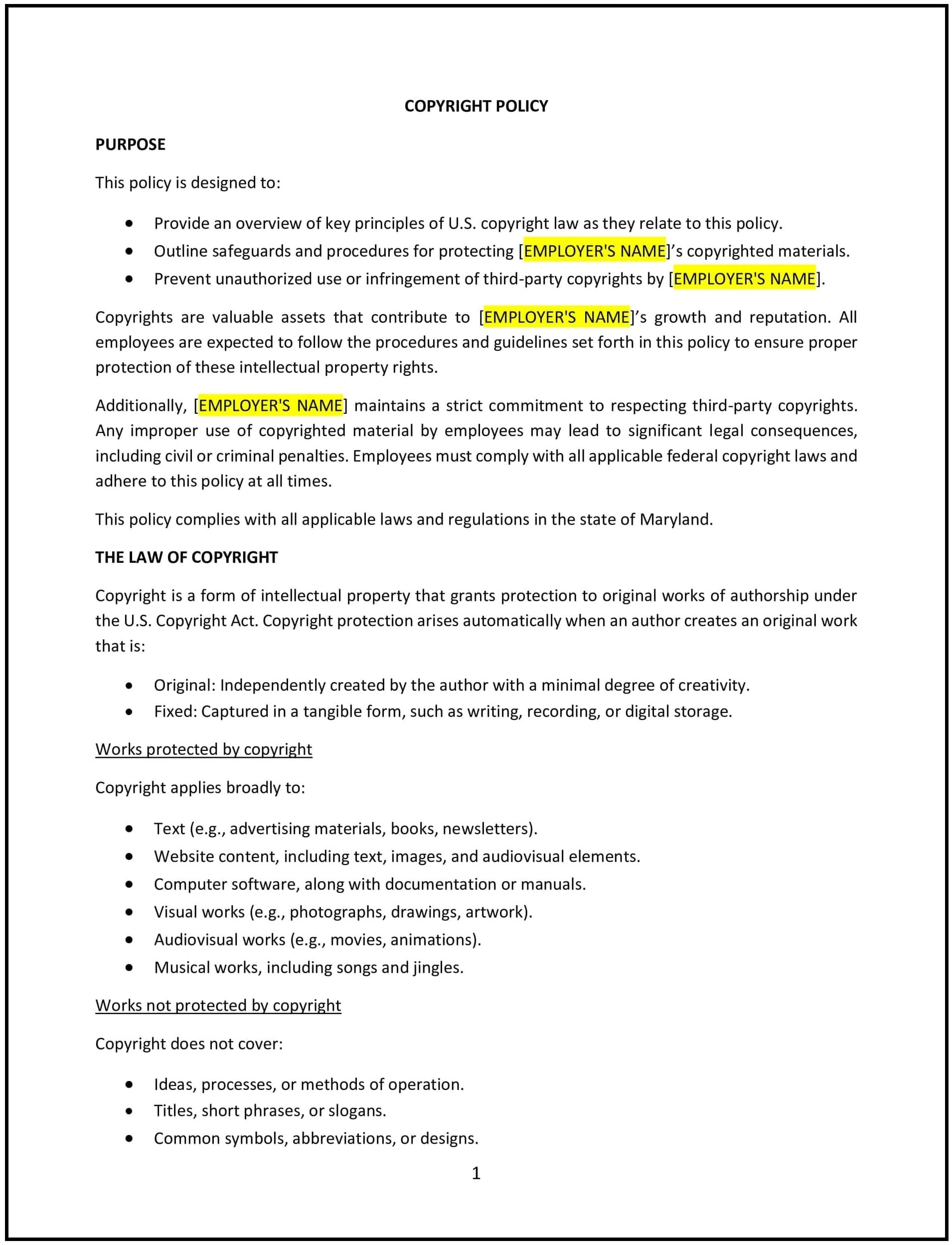Got contracts to review? While you're here for policies, let Cobrief make contract review effortless—start your free review now.

Customize this template for free
Copyright policy (Maryland)
This copyright policy is designed to help Maryland businesses protect intellectual property and ensure the proper use of copyrighted materials. It outlines guidelines for creating, using, and sharing content while respecting the rights of creators and complying with applicable copyright laws.
By adopting this policy, Maryland businesses can safeguard their intellectual assets, minimize legal risks, and foster a culture of respect for copyright ownership.
How to use this copyright policy (Maryland)
- Define copyright: Clearly explain what constitutes copyrighted material, including text, images, videos, software, and other creative works.
- Outline permissible use: Specify how employees may use copyrighted materials, such as through licenses, fair use, or permissions.
- Protect intellectual property: Establish procedures for registering, managing, and enforcing the business’s copyrighted materials.
- Require attribution: Mandate proper credit for external copyrighted works used in business operations, where applicable.
- Prohibit infringement: Emphasize that unauthorized use, duplication, or distribution of copyrighted materials is strictly prohibited.
- Set reporting protocols: Provide instructions for reporting suspected copyright violations, both internal and external.
- Reflect Maryland-specific considerations: Address any state laws or practices relevant to intellectual property rights and their enforcement.
Benefits of using this copyright policy (Maryland)
Implementing this policy provides Maryland businesses with several advantages:
- Protects intellectual assets: Safeguards proprietary content and creative works from unauthorized use.
- Reduces legal risk: Helps avoid penalties or disputes related to copyright infringement.
- Promotes ethical practices: Encourages respect for intellectual property rights in all business activities.
- Enhances brand reputation: Demonstrates a commitment to lawful and ethical content use.
- Streamlines processes: Provides a structured approach to managing and using copyrighted materials.
Tips for using this copyright policy (Maryland)
- Educate employees: Provide training on copyright basics, including fair use, permissions, and the risks of infringement.
- Use secure systems: Implement tools to track and manage the business’s copyrighted works.
- Monitor external use: Regularly review how the business’s intellectual property is being used by others and address unauthorized use.
- Obtain permissions: Always secure proper licenses or permissions before using third-party content.
- Stay updated: Reflect changes in Maryland and federal copyright laws in the policy.